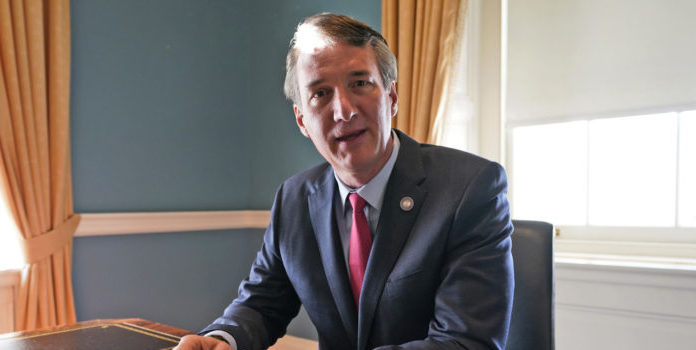(Madison Hirneisen, The Center Square) Virginia Republican Gov. Glenn Youngkin is requesting changes to a pair of bills dealing with the regulation of hemp-derived products in the commonwealth, proposing an exemption that would allow some CBD products with THC to remain on store shelves.
After weeks of debate and several amendments, lawmakers in the General Assembly voted to pass a pair of bills that limits the amount of THC – a chemical found in the marijuana plant that can be intoxicating to consumers – included in a hemp product to a concentration of 0.3% and two milligrams per package. The bills also establish labeling, testing and packaging requirements for hemp-derived products.
Lawmakers in the General Assembly who brought the bills forward voiced concern about consumer safety, citing reports of children across the commonwealth consuming products containing THC and becoming ill from them. Products containing THC, including Delta-8 edibles, have been largely unregulated in the commonwealth.
Youngkin’s proposed changes to the bills would allow certain products containing both THC and CBD – a non-intoxicating chemical found in the marijuana plant – to be sold on store shelves. Specifically, the governor’s proposed substitute bill states products containing no more than two milligrams of THC per package or products with a 25-to-1 ratio of CBD to THC could be sold.
Macaulay Porter, Youngkin’s spokeswoman, said in a statement the governor’s amendment “continues his efforts to crack down on dangerous THC intoxicants, including synthetic products such as Delta 8.” Porter went on to explain the administration heard from individuals who have used CBD products as therapeutics.
“Following feedback from parents whose children have experienced positive benefits from CBD products, the substitute also includes a narrowly tailored exemption clarifying that the legislation will not outlaw those therapeutic products,” Porter said. “Governor Youngkin’s substitute takes into account these critically necessary products while going even further to clear store shelves of illegal products responsible for sending children to the hospital.”
Porter noted the governor’s bill will also require retailers to register with the enforcement agency to sell any consumable hemp-derived product.
The governor’s amendments come after a coalition of business groups that are part of the Virginia Cannabis Association sent a letter to Youngkin earlier this month voicing concern that the pair of pending laws “would have the unintended result of eliminating the thriving Virginia hemp industry.” The coalition argued the two milligram THC limit is “arbitrary” and would “needlessly eliminate the vast majority of non-intoxicating CBD products from the market.”
Youngkin’s amendments to the pair of bills appear to take several of the concerns voiced in the letter from the Virginia Cannabis Association into consideration.
Groups skeptical of the governor’s proposed amendments say the changes could result in products with higher amounts of THC being sold, so long as the products meet the 25-to-1 CBD to THC ratio rule.
“While Governor Youngkin’s proposed amendments would achieve his goal of prohibiting the sales of synthetic marijuana-like products in the Commonwealth, they would also allow for products which contain THC in potentially intoxicating amounts to remain on store shelves,” JM Pedini, executive director of Virginia NORML, a group that supports the legalization of marijuana, told The Center Square.
The governor’s proposed amendment to the bill also removes a provision requiring topical hemp products like lotions or oils to have a “bittering agent” that was intended to thwart individuals from consuming it. Youngkin’s amended bill, however, does maintain anyone who sells or manufactures an “industrial hemp extract” or food that contains an industrial hemp extract without a permit or sells a product that contains greater than the specified THC limit in the bill is subject to a $10,000 fine for each day a violation occurs.
Lawmakers will consider Youngkin’s proposed amendments to the bills during a one-day reconvened session April 12. The governor has sent recommendations for 78 bills back to the General Assembly for consideration.

